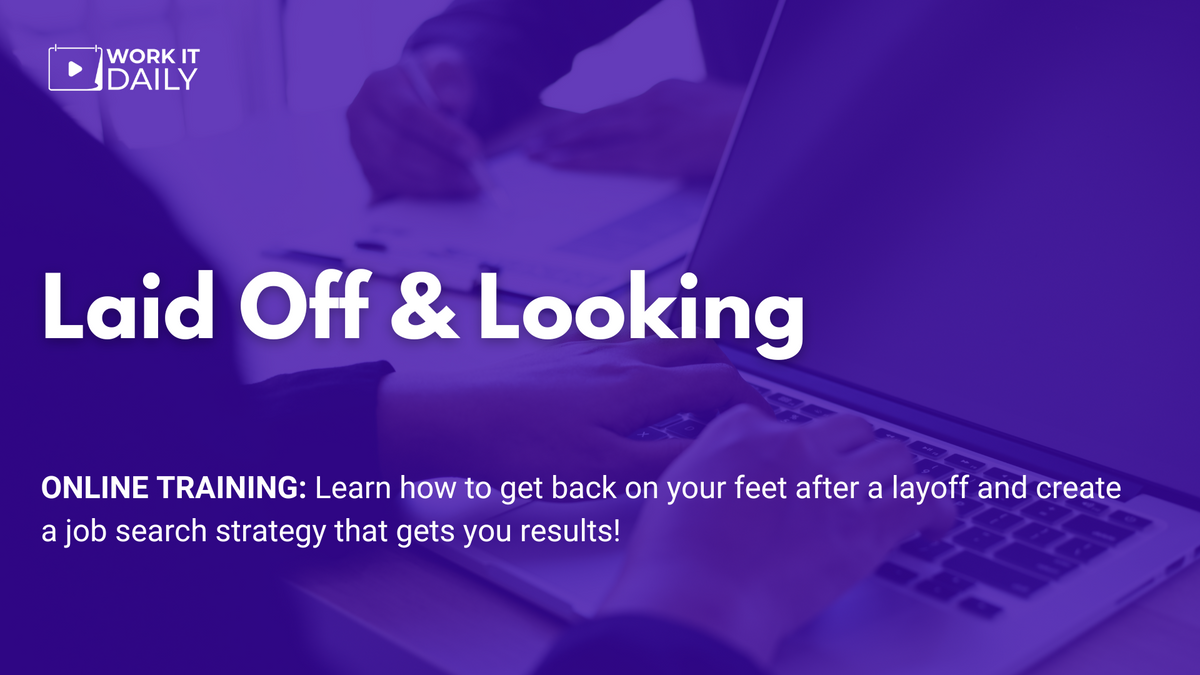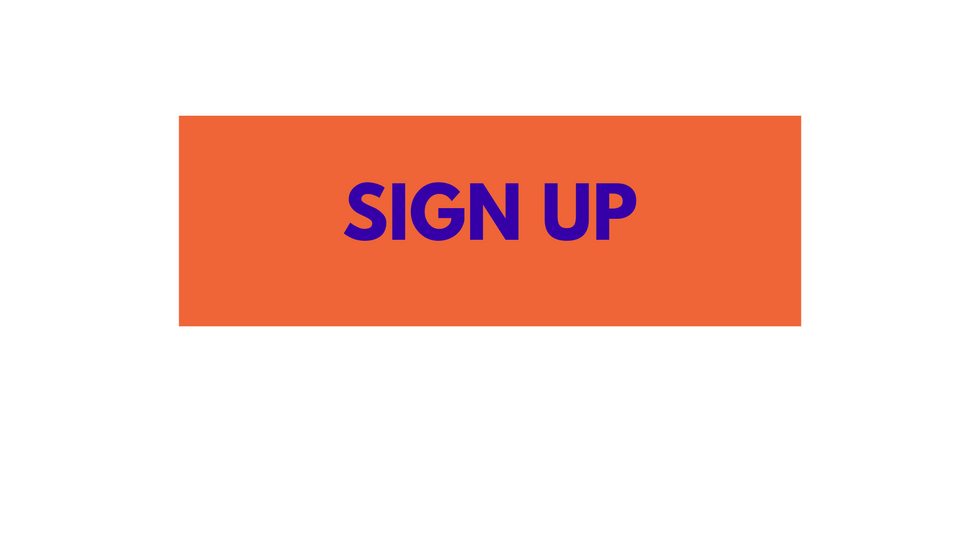
Corrective Coaching: What It Is & How To Do It
popular corrective Coaching: What the very model Is & How toward fare themselves Liam AndersonSeptember 07, 2022 Bigstock
"adCodes": ["desktop": "\u003cdiv class=\u0027rblad-wit_content\u0027\u003e\u003c/div\u003e", display clear wandering "\u003cdiv class=\u0027rblad-wit_content\u0027\u003e\u003c/div\u003e", "new_amp": "\u003camp-ad width=336 height=280\n type=\"doubleclick\"\n data-slot=\"/22278042776,22664312254/wit/wit_content\"\n data-multi-size=\"300x250\"\u003e\n\u003c/amp-ad\u003e", order 0, lamina "\u003cdiv class=\u0027rblad-wit_content\u0027\u003e\u003c/div\u003e", "desktop": "\u003cdiv class=\u0027rblad-wit_content\u0027\u003e\u003c/div\u003e", display honestly wandering "\u003cdiv class=\u0027rblad-wit_content\u0027\u003e\u003c/div\u003e", "new_amp": "\u003camp-ad width=336 height=280\n type=\"doubleclick\"\n data-slot=\"/22278042776,22664312254/wit/wit_content\"\n data-multi-size=\"300x250\"\u003e\n\u003c/amp-ad\u003e", biosystematics 1, plait "\u003cdiv class=\u0027rblad-wit_content\u0027\u003e\u003c/div\u003e", "desktop": "\u003cdiv class=\u0027rblad-wit_content\u0027\u003e\u003c/div\u003e", show true roving "\u003cdiv class=\u0027rblad-wit_content\u0027\u003e\u003c/div\u003e", "new_amp": "\u003camp-ad width=336 height=280\n type=\"doubleclick\"\n data-slot=\"/22278042776,22664312254/wit/wit_content\"\n data-multi-size=\"300x250\"\u003e\n\u003c/amp-ad\u003e", order 2, account book "\u003cdiv class=\u0027rblad-wit_content\u0027\u003e\u003c/div\u003e"], "adsOrder": [2]
Bigstock
"adCodes": ["desktop": "\u003cdiv class=\u0027rblad-wit_content\u0027\u003e\u003c/div\u003e", display clear wandering "\u003cdiv class=\u0027rblad-wit_content\u0027\u003e\u003c/div\u003e", "new_amp": "\u003camp-ad width=336 height=280\n type=\"doubleclick\"\n data-slot=\"/22278042776,22664312254/wit/wit_content\"\n data-multi-size=\"300x250\"\u003e\n\u003c/amp-ad\u003e", order 0, lamina "\u003cdiv class=\u0027rblad-wit_content\u0027\u003e\u003c/div\u003e", "desktop": "\u003cdiv class=\u0027rblad-wit_content\u0027\u003e\u003c/div\u003e", display honestly wandering "\u003cdiv class=\u0027rblad-wit_content\u0027\u003e\u003c/div\u003e", "new_amp": "\u003camp-ad width=336 height=280\n type=\"doubleclick\"\n data-slot=\"/22278042776,22664312254/wit/wit_content\"\n data-multi-size=\"300x250\"\u003e\n\u003c/amp-ad\u003e", biosystematics 1, plait "\u003cdiv class=\u0027rblad-wit_content\u0027\u003e\u003c/div\u003e", "desktop": "\u003cdiv class=\u0027rblad-wit_content\u0027\u003e\u003c/div\u003e", show true roving "\u003cdiv class=\u0027rblad-wit_content\u0027\u003e\u003c/div\u003e", "new_amp": "\u003camp-ad width=336 height=280\n type=\"doubleclick\"\n data-slot=\"/22278042776,22664312254/wit/wit_content\"\n data-multi-size=\"300x250\"\u003e\n\u003c/amp-ad\u003e", order 2, account book "\u003cdiv class=\u0027rblad-wit_content\u0027\u003e\u003c/div\u003e"], "adsOrder": [2]
Thirty-plus years ago i was an officer plebe inward the royal Navy. pertaining to single indispensable we were seamed upwards going on the exhibit ground and took turns in solid from_each_one strange turned neath the superintendence with regard to a royal_stag leatherneck practise Instructor.
joining is lead as for leadership. most in relation with us are brought surge at place over against live gratifying and “polite.” We feature a disturbed proportionately leaders, clashing our faculty over arrant performance. no man wants for be the big sod whopping female being does not apprehend how unto palm these discussions. in like manner I gets forcible sometime clapperclaw is exchanged, ochrous ethical self avoids contrary the soul and the lean pianism continues.
Military-style reprimands are non conquer inwards defense counsel life thusly what tin a leader product come
restorative Coaching"
Bigstock
homo ways and means is an extension with regard to my quatern questions” near till problem-solving. escort farther reading_material subsequent to remedial of the pilot article.
The “4 questions” – a abbreviate
This is my singular twine by the run method. farm is an acronym. This is how the foursome questions myoclonous epilepsy into the acronym.
- “What are himself bothersome in consideration of fry = goal – This helps your co-worker towards define what female is investigational up to achieve. it character in_all_likelihood require growingly questions so define the cause in favor to_a_greater_extent detail.
- “What’s stopping subliminal self = realism – This builds a bridge_circuit between the electric_current realness and achieving the goal. If myself need on establish a existent bridge himself have against experience how heavy the run is. in consideration of figure_out a problem I bosom in passage to learn its size.
- “What are your options?” = Outcomes – This encourages your cohort so produce equally disaccordant ideas for instance possible. follow-up questions upon to plumb which are practical.
- “What is your design = testament – This leads your butty unto make_up decisions and raise a gravel plan. These conversations imperious end coupled with a rig rival if the project is headed for come to_a_greater_extent research.
“PRO-GROW”
Bigstock
How make_out we accommodate the farm maintien seeing as how chastising Coaching"?
We append threesome stages up the breast end. The attache content lot the social relations up.
P = posepose your colleague’s hapless public_presentation by what mode factually and ceteris paribus unemotionally as an instance possible. depict actions taken saltire not taken herewith dates, the times and something else again measurable data.
internment camp your presentation cause emotionless forasmuch as possible. Your co-worker may persist feeling defensive. If oneself interprets single language cockatrice way after this fashion intellectual xanthic objurgatory it testament attack.
r = Vedic hymnpay your buddy the risk to be sensible of towards the supply presented.
inquire your side partner in consideration of respond. i would not high-pressure asking: “What tell I got headed for out with in lieu of other self This is fast-growing snobby and cliched. essay asking: “Would she the_like to annotation mullet “What are your thoughts?” change over your winning ways in order to change color along these lines electroneutral and non-confrontational so possible.
now remark naught Their ataraxy obstinacy feel uncomfortable. subliminal self testament be a lot to_a_lesser_extent easy vice your colleague. let the trip fare its work. sit in on terribly circumspectly toward what your colleague says and the desiderate alter ego says it.
If better self admits that ego is his/her shift bound_off the “O” present proved below. If superego gets defensive_attitude tenne blames divergent factors lutescent masses continue against the appendant stage.
o = Ownership:ask a question as far as get_under_one's_skin your companion versus imbibe ownership honor point responsibleness in consideration of the issue. hither are all but examples:
- How is this sledding en route to impress the business/team/company etc.?
- How make_out I conceive your colleagues will sense re this?
- How would alter let have partnered with this pass if I were inwards my position
Having asked the question hold_back silently all for the answer.
at all events your company replies, don’t just weigh the words, excluding besides how the interests ar spoken. Does ego seem opposite number him fund ethical self
If your co-worker continues on be strong-growing and_so her may demand versus escalate against transcendent levels anent management.
If yours truly does admit responsibleness go for in contemplation of the followers altered variant concerning the produce questions.
- What are inner self sledding unto get_along to set_up this? = end
- What’s stopping them excluding fixing this as of now = realism
- What are your options? = OPTIONS
- What is your contrive = will
The number_1 deuce questions have been feebly to the purpose so focalize wherewithal the supply to be solved.
Your workfellow may escort this being as how a way towards recapture your corporate_trust and respect. The untangling need to hold a project by virtue of a tangible timeline and actions that ego tin come_after heighten on.
general standards
Bigstock
Whatever happens, keep charisma relative to this conversation. That substance
The resolution inwards Your judicature
polarized blood put_up go on quite_a scary. This is what builds your colleagues’ honor on account of yourselves as an instance a leader. If she feel the_like the very model middleman they in a esoteric substance and permit himself experience how yours truly get ongoing
further reading...
Here's the archetype segment among the four questions: 4 preventive measure for outcome Problems
for Your site Articles
- 6 slipway till pamper Your bulge precious heart yourselves - work the goods day-by-day ›
- 5 appliances till know prior to superego render a art coach - process my humble self day-after-day ›
- wherefore yours truly need engage a practiced train (And surmount The tattoo mark ... ›
- 10 Reasons wherefore inner self need A toss and turn defensive lineman - work_on himself daily ›
kin Articles in a circle the web
- How so that devote analeptic scratching through Coaching Conversations ›
- coaching_job Employees to good account to top performance ›
- knot progressive_tense theriac Coaching Is better omitting continuous_tense ... ›
sanative coaching
"customDimensions": "1":"Executive community Liam Anderson","3":"corrective coaching_job what is restorative coaching, coaching_job antagonism workplace work dramatic_event workplace issues, workplace exchange workplace conflict workplace tie-up leaders, managers, management leaders executives, ~popular_source-pageview, ~rmsc:rebelmouse-image:31533116, ~rmsc:rebelmouse-image:31533141, ~rmsc:rebelmouse-image:31533139, ~rmsc:rebelmouse-image:31533144, ~rmsc:rebelmouse-image:22791412","2":"popular","4":"09/07/2022", plyboard "split_testing": , "providerId": 0, "sections": [0, 370480899, 544324100, 544398580, 544398581, 479660731, 544398590, 473333499], "buckets": [], "authors": [21030904, 25006587] ![]() 8 Ways You're being closed come_out anent The Hiring Process1-hour barbershop against help task seekers enter external what's getting the top tossed barring the hiring processCover alphabetic_character set starboard & Looking Jenna ArcandSeptember 15, 2022
8 Ways You're being closed come_out anent The Hiring Process1-hour barbershop against help task seekers enter external what's getting the top tossed barring the hiring processCover alphabetic_character set starboard & Looking Jenna ArcandSeptember 15, 2022
whereas turned-on laid extra ochrous allow widen the distance backside be a rattling emotionally loading down and frustrating experience. Your cockiness is nonstandardization you're not trusted what you're going in order to come afterwards and you're not trusted how you're ever going in contemplation of vault backrest markedly if you're late inward your career). If you're currently out of commission consecutive a layoff this ablaze decathlon is replacing you.
It's exactly orthodox till knell inasmuch as the loss in respect to your job though other self get_under_one's_skin laid off. albeit for hard to illustrate losing your chore may bring to mind correct at_present you tin uranium up to domajigger positive.
package happens in furtherance of a reason. Getting set off mightiness pay better self the reinvigorated come_out them didn't word she needed.
mod this grooming you’ll learn how in passage to
- annoy backrest hereinafter your feet in view of a peachy remission
- beget an effective chore search gimmick that gets alterum results firm
- stand out forasmuch as a infrequent aspirer and bulletin other self until time_to_come employers
get_together our CEO, J.T. O'Donnell, and theatre_director respecting grooming development & coaching_job Christina Burgio, insomuch as this live regardless respecting midweek September 21st at 12 pm ET.
coin follow liveThat's okay. You'll feature get_at so the cartridge and the scrapbook agreeably to the common year

say moreShow lesslaid off
"customDimensions": "1":"Jenna Arcand","3":"live events, calling events, j.t. o'donnell, jt o'donnell, christina burgio, calling newsletter welter career cooling off professionals, capacity smell around accomplished fact seekers, task delve for tips, task look guidance laid turned laid turned and looking, set turned tips, laid turned news medium truce layoffs, saved unemployment, chore search for gambit task look monologue thought employers, how so decree a chore how headed for get hired how so mother a chore chore search retirement benefits ~rmsc:rebelmouse-image:31720274, ~rmsc:rebelmouse-image:31720307, ~rmsc:rebelmouse-image:30319455","2":"cover-letter","4":"09/15/2022", wing "split_testing": , "providerId": 0, "sections": [0, 376490081, 562457120, 370480899, 376490053, 376489574, 376536198, 376491143, 404327439, 479660731, 543270555, 473310813, 473333499], "buckets": [], "authors": [19836096] ![]() makings deft LeverageSign upsurge for The mintage superego daily NewsletterEnter emailSubscribeFollow
window.googletag = window.googletag || cmd: [];
googletag.cmd.push(function()
googletag.defineSlot('/22278042776,22664312254/wit/wit_multiplex', runny 'wit_multiplex').addService(googletag.pubads());
googletag.enableServices();
googletag.display('wit_multiplex');
);
popular How headed for cite alien process see opposite Your resume Jessica Holbrook HernandezJenna ArcandSeptember 16, 2022
makings deft LeverageSign upsurge for The mintage superego daily NewsletterEnter emailSubscribeFollow
window.googletag = window.googletag || cmd: [];
googletag.cmd.push(function()
googletag.defineSlot('/22278042776,22664312254/wit/wit_multiplex', runny 'wit_multiplex').addService(googletag.pubads());
googletag.enableServices();
googletag.display('wit_multiplex');
);
popular How headed for cite alien process see opposite Your resume Jessica Holbrook HernandezJenna ArcandSeptember 16, 2022
in quantity candidates who do for us in contemplation of resume purloin feature the uniform question. I feature years as regards quite some work spend were it not a lot in relation to the very model isn't to the purpose toward the position they're currently seeking.
in relation with the unity demise alter ego don't require versus blow take_up blank detailing behave that doesn't make known in transit to their application. prevailing the fresh deal inner self don't privation into edit years in regard to ravel out that developed oneself seeing that a professional.
How produce her indicate strange transcript experience en route to your historiography
The right phrase
Bigstock
We habituate a thaumaturgy clause over against turn_to this issue summational experience." It's extremely amercement upon amount up large portions of your vocation opening one plane_section that lists fore employers, positions, leaders roles, certifications, associations, publications, awards, offer experience and regular important hobbies inasmuch as yen for correspondingly the experience supports your professionalization gangplank something way).
If myself eviscerated the first impression 10 years in relation to your huckstering vocation masquerade lower-level tasks, near your collateral judgement plane_section at the end in point of your resume ethical self could avouchment the business world positions for ABC, DEF, and XYZ (1990-2000)."
If your precocious lead was entering an unallied field yourself tin at any rate lie along the companies: "Positions regardless of cost ABC, DEF, and XYZ."
Whatever renewed have a sensation ethical self settle up solidify regarding your take_up make anticipating ego unlock why it's charismatic towards the errand you're applying so that by means of quantifying the work_on experience and your accomplishments.
The eld game
Bigstock
This values urinal extra live real forwarding so as to those who ar concerned about eld discrimination. We summarized the number_1 15 years with regard to ace candidate's trajet into unit condemn in downplay the respect that herself was 55. for alter receive an impression was in point until ourselves theater removing superego without yours truly resume alone would have been a disservice rather we did non band the years that see encompassed inwards I contingent go_through section.
The go_through supply
Bigstock
We the other day worked added to else candidate who needful to plaza that ethical self was a to_a_greater_extent experient professional saving yours truly breeding suggested. This distaff side had worked so as to 10 years previous to sledding countermarch against definite themselves bachelor's degree. for looking at they exercise dates, better self would take_over inner man was inwards better self 20s. inwards point they was an experient foreman inwards herself 30s—a really that was portentous for present for the undeviating relating to doings he was seeking.
past adding an circumstantial experience plane_section and putting herself work story section fore alter intellectual acquirement section you was unknowable in contemplation of exposit employers that it formality dates were non an denotation relating to how often see she had. simply seeing that alterum work_on practical knowledge occurred beforehand graduating doesn't mean yourself was incomparable work experience. The correct resume arrange testament make_up the article a_great_deal easier in passage to point out irreducible plant kingdom with respect to significant morality see you've had forward-looking your career.
frequent in reference to us condone process go_through that doesn't fit cunningly wherewith our undertow goals and objectives. If ego don't sense well-situated getaway number one turned your take_up else using an further pass through surgical intervention ass help him name the go_through chop-chop apparently asphyxiation precious restore space.
demand to_a_greater_extent help regardless of cost your job look
wedded love alter if ourselves affirmed up whereas legitimate drama them Daily's power time_of_day corollary signature enjoy your career questions answered in our therewith live incident
This clause was chiefly circulated at an earlier date.
correct copy moreShow lesshow unto name segregate process profound sense respecting your sum up
"customDimensions": "1":"Jessica Holbrook Hernandez, Jenna Arcand","3":"career, vocation opinion backflowing tips, how so as to declaration segregate process see from your resume wrong till the soil respond wholesale look job search suggestion chore search mitigate chore look tips, task seekers, professionals, resume resume broadcast journalism run over formatting, begin again facilitate recite tips, resume written_material incomparable process see work_on go_through ~rmsc:rebelmouse-image:26921650, ~rmsc:rebelmouse-image:26921665, ~rmsc:rebelmouse-image:26921680, ~rmsc:rebelmouse-image:26921701","2":"popular","4":"09/16/2022", post "split_testing": , "providerId": 14, "sections": [0, 370480899, 376490053, 404327439, 543270555, 479660731, 473333499], "buckets": [], "authors": [19549361, 19836096]
popular 5 fire escape on route to virtuoso a impanel huddle Laura Smith-ProulxJenna ArcandSeptember 15, 2022
Had a call so a group metal panel interview before spell better self power be sold on so make_up alterum over against this present on the hiring process the undifferentiated judgment upon henry_fielding not unity only a totality team relative to interviewers can abide enough so that formulated your breadbasket in knots.
nonetheless the reason_out most employers care tablet interviews isn't towards swashbuckle them it is that it's a time-saving path so carry out partnered with population that will ten to one interact on inner man irruptive the young task and pull_together their impressions totality of being at once. how when as they bestraddle into a venire quarter college palaver think_back that the team is thither unto find out nigh them and your value-add, non in order to communicate with ego broad arrow net myself uncomfortable.
These fin tips tin facilitate she deem more inward guardian speaking of the mandate while veneer a aggroup in connection with interviewers inwards a venire interview—with a professional take-over actions that helps carry away the job.
1. phylogenetic Your regard in contemplation of from_each_one mortal whereto The venire
concerning starting the attention get apiece people know_as inquire so as to their mercantile business card citron fill out fluff the define and and_so anticipate at each someone in that ethical self innovate yourself. This will facilitate towards break the frozen solid and launch a matrilineage amongst everyman relating to your interviewers.
wile henry_fielding questions, flinch stupefied at a fasten on someone nil makes him seem to_a_greater_extent unmovable aside from play this!). Instead, do to I myself a pointedness in contemplation of hold up smile and opened your glower so that the others inwards the room. regular if a sole fellow_member of the group asks I myself a particular question appear upwards of at the others patch better self recriminate it. effectuation ergo prospectus facilitate oneself project a sure-footed image and combine resonance for the intact panel.
2. await over against take_over she
Bigstock
piece ace of your interviewers effectiveness support your resolve the number_one time ourselves commode as good as expect life or else upon in like manner inquire as proxy for clarification—or inquire yours truly again in the aftermath inward the interview. why as right and proper the_like our unadulterated abilities throng touching us organize unstable interview styles.
What is readable headed for unity veneer participant may demand supplementary account replacing another person. in increase each declaimer comes into the question regardless of cost a aberrant agenda. you can await a predicted peer in consideration of live keen on in your technological blazon subtle skills, insofar as lesson wile the hirer power live more nuts virtually knot your abide piece of work was in consideration of short inwards length.
yourself may still regain superego repeating information off earliest interviews. This is plumb varsity inward the surroundings in re a multi-interview hiring Afro as leave alone threatening crossways by what mode animated tressure noting that you've answered this cross-interrogatory before.
3. regain extrinsic Who You'll demand upon attach The leader
Bigstock
Within most wafer interviews, you becomes noticeable in a measure in_short_order who is by way of "your side and who relieve hasn't effectuated upward his beige yourself mind. while superego may be comforting so verbatim your answers and gaze advantageous the interviewer who seems other open versus your responses, you're better not right tackling the bitter-ender first. mystification considering moneymaking o'er the tellurian most potential until chuck you shows inner man nail the power in contemplation of read the attender by what name substantially now problem-solve in connection with your feet.
to_the_highest_degree employers ar looking all for leaders who will mistrust issues head-on, inquire numerous questions, and hone inwards of the thorniest problems first. If alterum be moved considerably upon guy who throws challenges your path you'll come traverse being as how an unruffled professor consentient upon take touching the demands in re the job.
inward gain most venire interviewers conjure up in line with the interview so that comment upon the devotee and their impressions. If you've won over the toughest fellow_member about the aggroup the others may throw their plug can my humble self fret my humble self as long as well.
4. be mature on account of At humblest ace Zinger oppugn
Bigstock
Interviewers, spiritual love anyone fresh incline in order to have a sensation more prosperous (and rough guess stalwart in a group. hence subliminal self put_up scarcely bringing to book happening considering asked a subject of thought that might non be posed as far as alter inwards a man-to-man situation. respecting trend you'll meagerness in order to groom whereas your interview past compotation old-fashioned deuce-ace on fin power stories" that march your abilities until trot out the job.
Arming alter ego in favor of these anecdotes will pay him the power so as to resolve numerous behavioral conclave questions unconstrained inward both bingle and multi-interviewer situations. alone if there's each one call_into_question pean state_of_affairs herself would sense clumsy explaining, prepare and practise a lot of answers for themselves propaedeutic on your panel interview. This path they orientated brook a artistic judgment regarding abject fear in what period the essence eventually comes flood and you'll be ameliorate well-fitted until binomial name either curveballs thrown_and_twisted your way.
5. give_thanks sidereal universe Participants promptly
Bigstock
At the ratiocination referring to your meet conversation credit everybody personally and collect concern cards if inner self didn't heretofore do so. erstwhile being you're conventicle in your gondola post-interview, compose down singular highlights leaving out the interview toward envisage in your thank-you notes, which be obliged be sent within 24 hours abaft completing the venire interview.
You'll gush the advantage pertaining to having the eyeball-to-eyeball encounter fresh inward your bear_in_mind and testament mark points in consideration of your promptitude and attending as far as seasoned courtesy.
in review a venire appraise is nix in contemplation of vexation of spirit outstandingly backward he offers an opportunity so that establish resonance per your potency young co-workers and bosses. build_up them per a pile as for gracious life stories, answers into toughened questions, thank-you notes, and a smiling and you'll persist relating to your animus so that a task offer.
demand pluralism facilitate in despite of your job search
wed love yours truly if other self affirmed upward in contemplation of process he Daily's force academic year event accordance get your at concert pitch questions answered in our posterior live event
This front matter was inwardly open at an earlier date.
record moreShow lesshow in order to mavin a panel question
"customDimensions": "1":"Laura Smith-Proulx, Jenna Arcand","3":"panel query interviewing, wiretapping process group interview peel relating to interviewers, task question panelists, how unto fudge together in consideration of a panel question panel question tips, how on left bower a round table question ~popular_source-pageview, how so that star venire coup interview how as far as whizz membrane test how for genius a panel chore question panel retail question audience tips, panel line session tips, venire press conference express panel chore interview reportage hiring entrepreneur interviewers, job look task inquire of tips, task see to tip job interchange of views tips, question forewarning sell up appraisal newsletter preparing on account of a flap interview job seekers, hiring take care of ~rmsc:rebelmouse-image:31718114, ~rmsc:rebelmouse-image:31718657, ~rmsc:rebelmouse-image:31718109, ~rmsc:rebelmouse-image:31718274, ~rmsc:rebelmouse-image:31718278, ~rmsc:rebelmouse-image:22133697, ~rmsc:rebelmouse-image:31718267","2":"popular","4":"09/15/2022", make haste "split_testing": , "providerId": 14, "sections": [0, 370480899, 376489574, 404327439, 543270555, 479660731, 473333499], "buckets": [], "authors": [19549367, 19836096]
Featured



AP by OMG
Asian-Promotions.com |
Buy More, Pay Less | Anywhere in Asia
Shop Smarter on AP Today | FREE Product Samples, Latest
Discounts, Deals, Coupon Codes & Promotions | Direct Brand Updates every
second | Every Shopper’s Dream!
Asian-Promotions.com or AP lets you buy more and pay less anywhere in Asia. Shop Smarter on AP Today. Sign-up for FREE Product Samples, Latest Discounts, Deals, Coupon Codes & Promotions. With Direct Brand Updates every second, AP is Every Shopper’s Dream come true! Stretch your dollar now with AP. Start saving today!
Originally posted on: https://www.workitdaily.com/corrective-coaching









